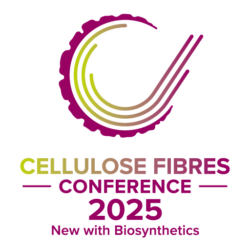10.12.2024
Cellulose Fibres Conference 2025 – New with Biosynthetics – Strategies in Changing Market Conditions
12-13 March 2025 – hybrid event (on site and online), Cologne (Germany)
++ Preliminary program released ++
The upcoming conference on 12-13 March 2025 in Cologne, Germany, will pave pathways to a sustainable textile industry
 |
Over the past few weeks, the Conference Advisory Board, and the experts from the nova-Institute, have thoroughly reviewed and evaluated over 40 submitted abstracts. The selected external experts bring new insights and perspectives from the pulp, fibre and further developing industries, promising to spark and deepen discussions at the event. Their expertise across the entire fibre value chain will enrich the topics covered and ensure a dynamic and insightful exchange of ideas. The presentations will provide a platform for the discussion at the conference after each session, and the Advisory Board members will foster a lively debate to drive innovation industry-wide. |
Today's Focus: Strategies in Changing Market Conditions for Cellulose Fibres
- Michael Carus, nova-Institute (DE): Fossil-free Textiles a Long Way to Go
- Dieter Eichinger, CIRFS (BE): Streamlining Fiber Identity: ‘Cellulose’ as the New Unified Standard
- Andreas Engelhardt, The Fiber Year (CH): Impact of Slow Demand Growth on Manufacturing and Traditional Sales Channels
- Simone Seisl (DE) and Hawkins Wright (UK): The Lyocell Market – a Bright Future?
- Marina Crnoja-Cosic, The European Technology Platform for the Future of Textiles and Clothing (Textile ETP) (BE): Textile ETP the Largest European Open Expert Network for Textile Research and Innovation
Adopting fossil-free textiles is a crucial strategy for navigating changing market conditions, as consumers and regulations increasingly demand sustainable alternatives to fossil fuel-based fibres. To stay competitive and meet climate goals, the industry must prioritise innovation and investment in renewable materials, fostering a shift toward a circular economy that reduces environmental impact and reliance on finite resources.
One idea shaping the identity of fibres might be on streamlining fibre terminology by proposing "Cellulose" as a unified standard for man-made cellulosic fibres (MMCFs), such as Viscose, Modal, Lyocell, and Cupro. This standardisation aims to simplify a fragmented market, enhancing consumer clarity, aligning with global standards that define fibres by polymer type rather than production method, and supporting sustainability and innovation by allowing the introduction of new eco-friendly technologies without restrictive classifications. Adopting "Cellulose" as a standard term could benefit consumers, industry stakeholders, and the environment by promoting greater transparency and fostering the development of sustainable fibre solutions.
Slow demand growth in the fibres and biosynthetics market can have significant impacts on manufacturing and traditional sales channels. When demand does not keep pace with production capacity, manufacturers may face excess inventory, which can lead to reduced profit margins and operational inefficiencies. This may prompt manufacturers to cut costs by scaling back production, investing in automation, or seeking partnerships to optimise resource use.
The lyocell market is experiencing rapid growth, driven by rising demand for sustainable textiles and significant investments in production capacity, particularly in China. Global production has tripled since 2018, with major players leading capacity expansion and backward integration into Dissolving Wood Pulp (DWP). Regulatory pressures and technological advancements are driving down costs, making lyocell increasingly competitive with cotton and viscose. Improved processing and spinning infrastructure are addressing supply chain challenges, enabling broader market acceptance and enhanced availability of lyocell fiber blends. This positions lyocell as a key player in the transition to sustainable textiles.
The European Technology Platform for the Future of Textiles and Clothing (Textile ETP) is the largest European network dedicated to textile research and innovation, established to ensure the long-term competitiveness of the EU textile and clothing industry. With 300+ member organisations from industry, research, and higher education, and over 1200 registered individual experts, the Textile ETP fosters sustainability, cooperation, and knowledge-sharing through networking, learning, and EU funding access. Since its creation in 2004 and transformation into an international non-profit association in 2013, Textile ETP has served as a Strategic Connector, Think Tank, and Advocate, promoting collaborative research and driving industrial innovation to address the evolving challenges of the textile sector.
Sponsors
Each year, the Cellulose Fibres Conference is supported by wonderful companies that through innovation actively foster the sustainable transition of the textile and fibre industry.
Meet the Innovation Award Sponsor of the Cellulose Fibres Conference 2025:
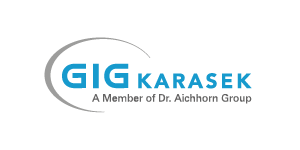 |
GIG Karasek |
|
Meet the Silver Sponsors of the Cellulose Fibres Conference 2025:
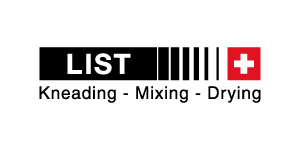 |
|
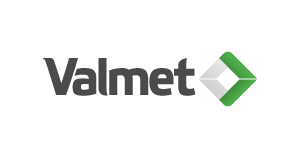 |
|
Meet the Bronze Sponsor of the Cellulose Fibres Conference 2025:
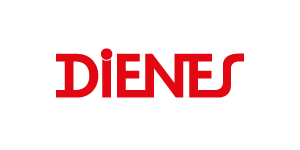 |
DIENES |
|
Sponsoring Opportunities
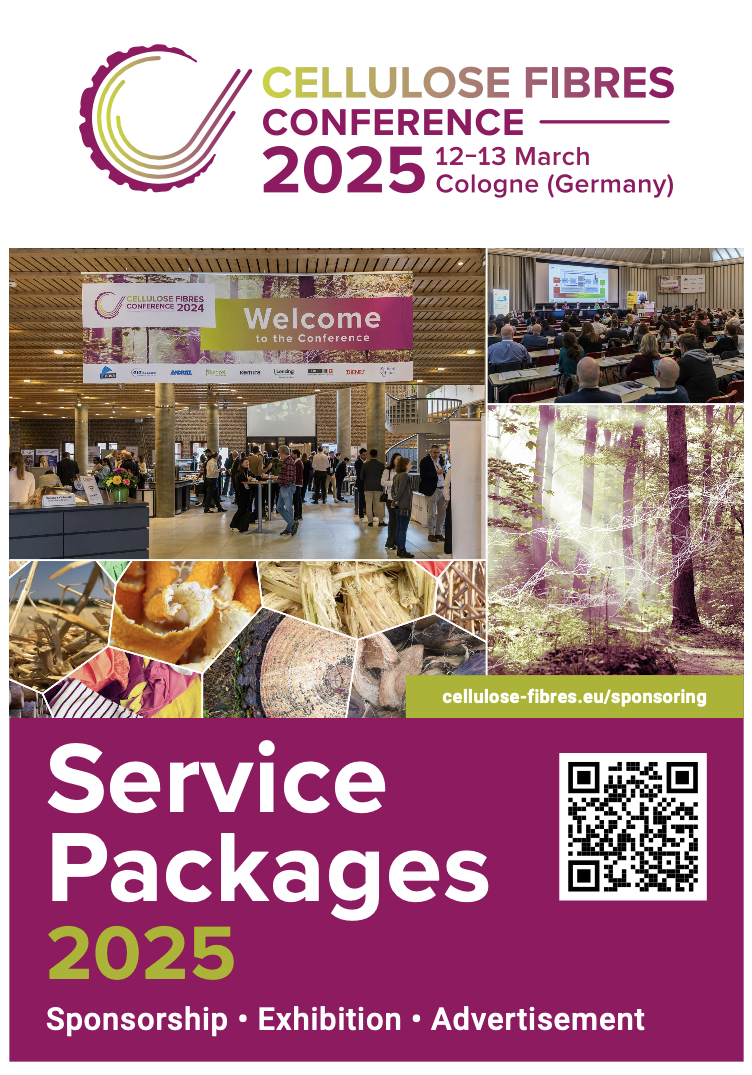 |
Become a sponsor of the conference!
Join us as a sponsor and find a range of sponsoring options which provide you with maximum visibility and impact at the conference. We are open to new ideas and would be delighted to implement them with you. Please contact us if our sponsoring options appeal to you or if you would like to put forward a proposal of your own! Key Account Management |
Call for Posters
Want to present a poster at the conference? You are welcome to present your latest products, technologies or developments. Deadline for submission: 31 January 2025
Submit your poster now!
Exhibition Opportunities
Become an exhibitor of the conference!
Companies that would like to book an exhibition booth (6m2) can do so for the price of 3,000 EUR (excl. 19% VAT). Included in the booth fee is one conference ticket. The conference exhibition is located prominently within the conference hall so interaction with the participants is guaranteed. Further information here.
Conference Registration
You are welcome to register now! Registration fee will be 1095 EUR (excl. 19% VAT) for both days and 745 EUR (excl. 19% VAT) for the virtual option.
We look forward to meeting you at the conference!
Your nova conference team.
